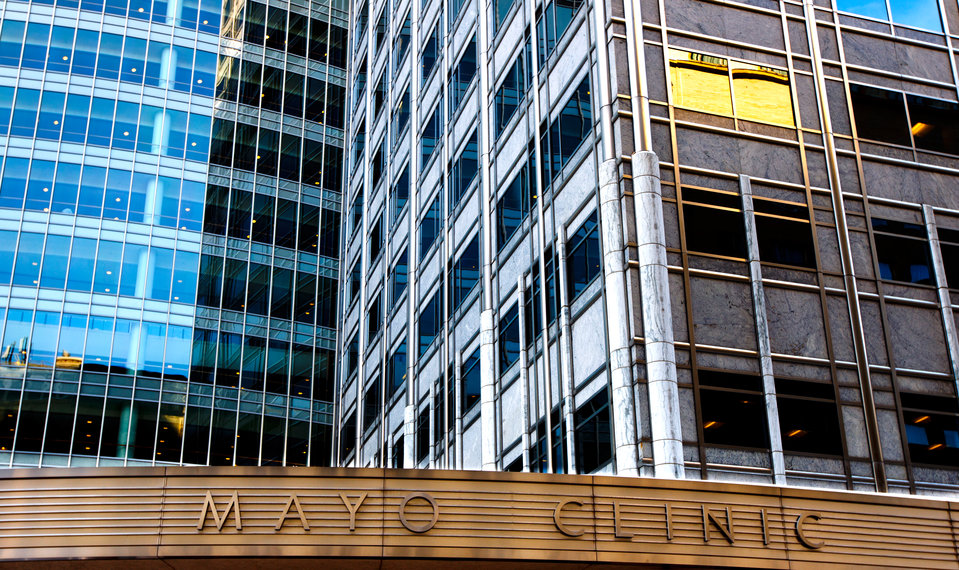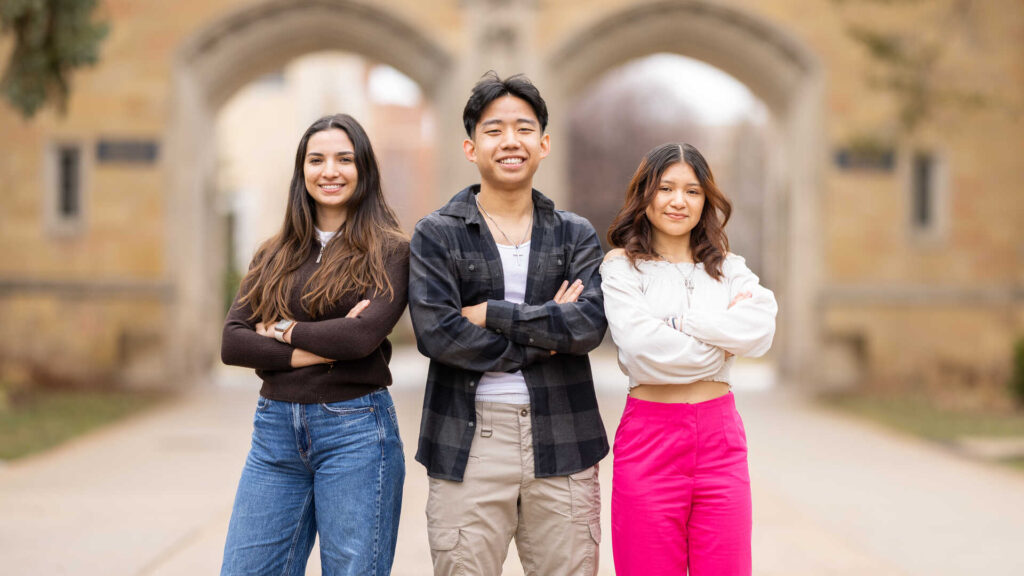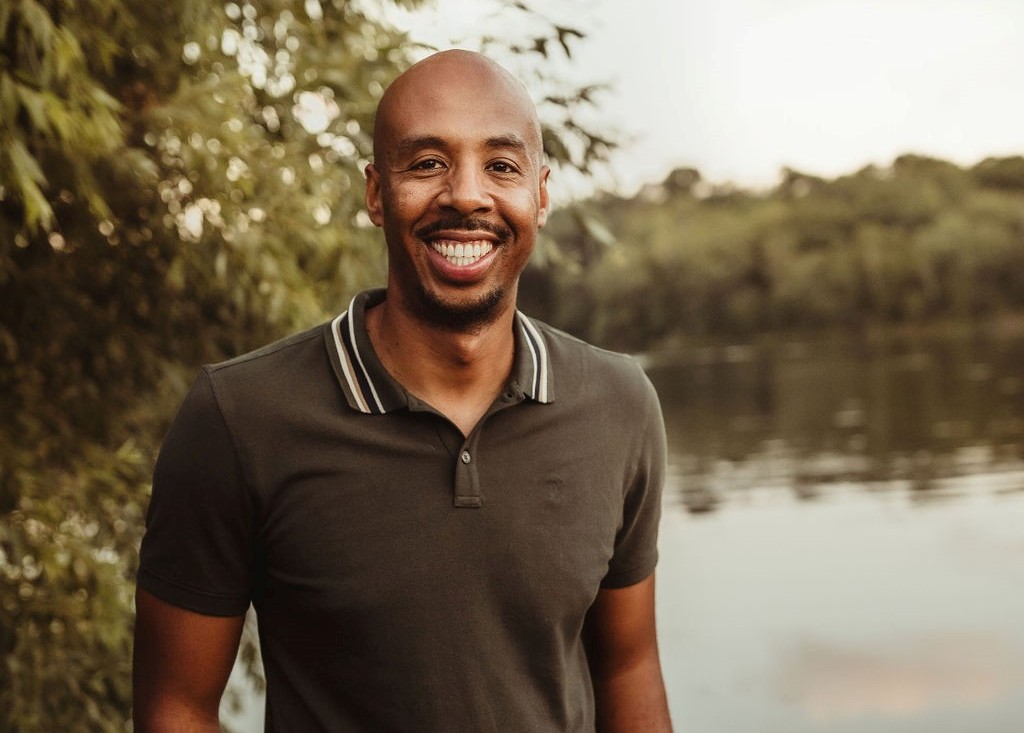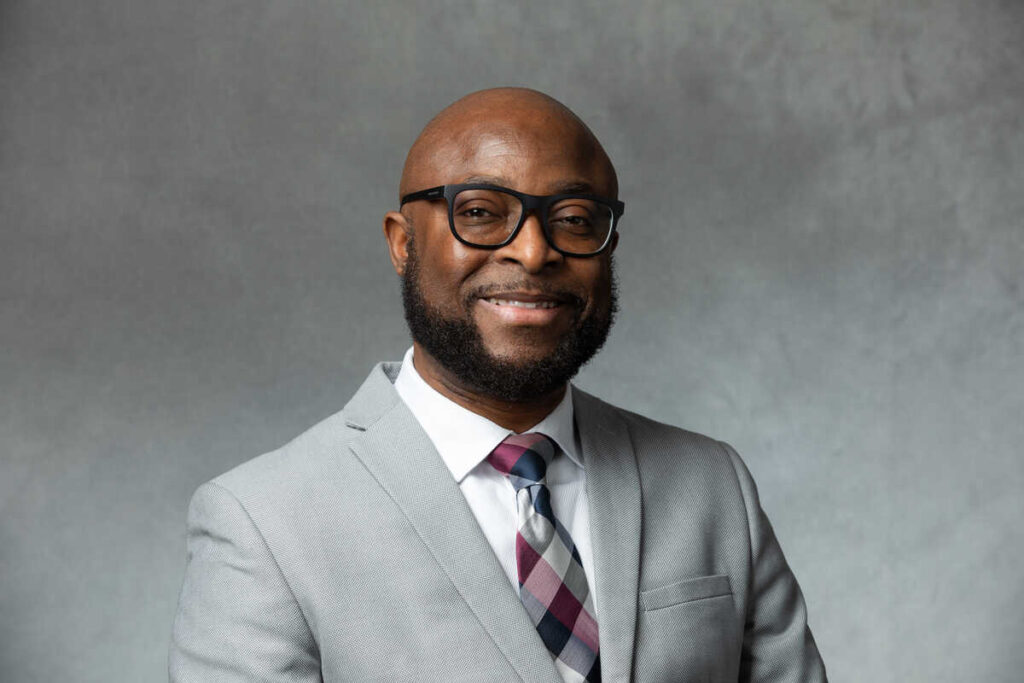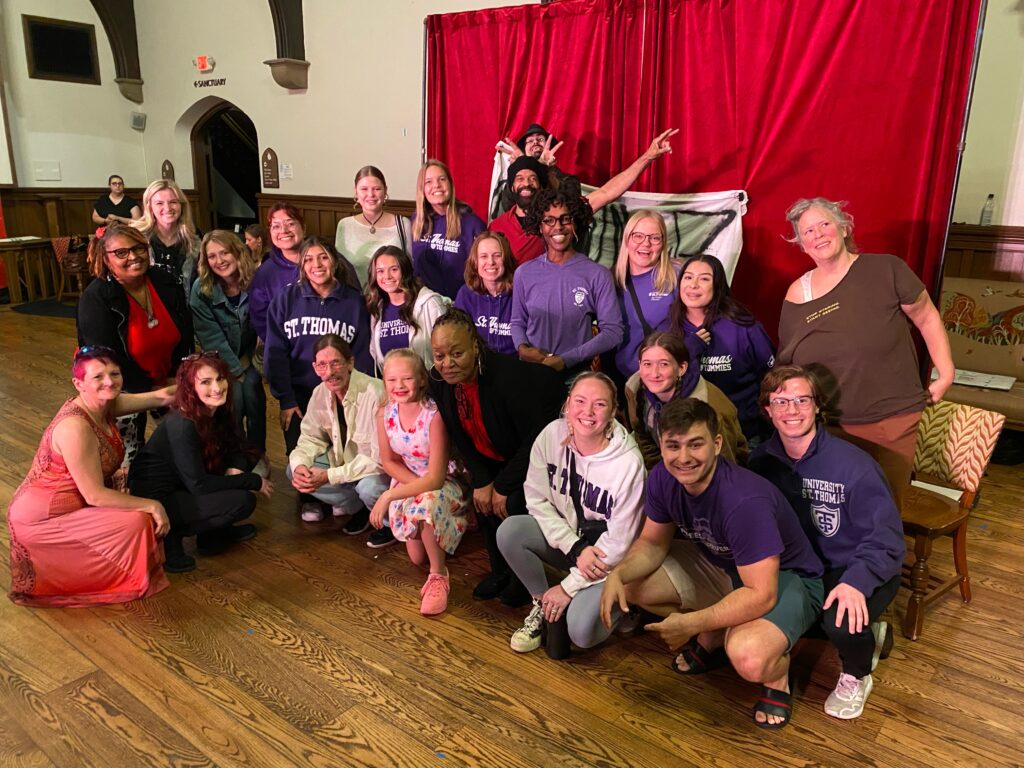The world-renowned Mayo Clinic is hailed for its groundbreaking medical research and health care. Through the Mayo Innovation Scholars Program (MISP), a group of select St. Thomas students had an opportunity to work on some leading-edge projects percolating at the Rochester medical institution.
The MISP is an annual research opportunity for undergraduate students majoring in science, business or economics; and graduate students in business. Minnesota private colleges and universities, including St. Thomas, form teams of undergraduate students, which include a graduate business student as team leader. In the fall, each team is given a new product or invention in development at Mayo Clinic to analyze; they present findings at the Mayo Clinic in early March.
Colin Martin, clinical faculty in biology, and David Alexander, an associate business professor, were faculty advisers for the 2018-2019 St. Thomas team. Martin said there are several reasons the MISP is a unique opportunity for students, including the experience of cross-disciplinary collaboration, interactions with professionals, and the independence the program both encourages and requires.
“This is not a planned activity, with a predetermined result at which you hope the students will arrive,” Martin said. “Rather, the students must collaborate to understand what the invention is, how it might be used, and what benefits it could provide to patients, doctors, or researchers, as well as to its inventors and to Mayo. The opinions and perceptions of the students matter tremendously, and this has the effect of getting them deeply and energetically involved.”
Student teams at St. Thomas are selected through a competitive process administered by the Undergraduate Research Opportunities Program. The 2018-2019 St. Thomas team included students from the College of Arts and Sciences and Opus College of Business: Shayla Curtis ’19, marketing and finance; Rachel Stroh ’19, biology; Eshan Varma ’19, business; and senior James Gustafson, chemistry. Augsburg University graduate student Paul Ollila served as team leader.
Opus graduate students who led other school teams included David Skluzacek ’21 MBA, Matthew Beukelman ’18 MBA, Kim Anderson ’19 MBA, Courtney Toussaint ’19 MBA, Lindsey Bogut ’18 MBA and Nouchie Xiong ’13 MA, ’19 MBA.
Because the projects are proprietary, students sign confidentiality agreements and can't share specifics. However, Shayla Curtis said the St. Thomas team’s project involved cancer research and the correlating business development and marketability of the project. She said being involved with a project of this degree at a highly respected institution was unparalleled.
“I was provided the opportunity to work in a diverse team and participate in experiential learning,” she said. “As a finance and marketing major, I do not know if I will ever get an opportunity to work so closely with research and individuals like I did with MISP. I am so thankful to have grown personally and professionally from my work.”
Eshan Varma described the MISP opportunity as “amazing” and especially appreciated the project he worked on, which he said will contribute to improving health care and saving lives in the future.
“I was informed that the type of work I was doing is usually done by individuals with at least five years of experience in some of the relevant skill sets related to research,” said Varma, who currently has an internship at Thomson Reuters. “Thus, it's definitely something that I will utilize and draw from in my future career opportunities.”
Curtis, who is working as a marketing intern at 3M this summer, said the biggest take away from her MISP experience was the ability to lead and learn simultaneously.
“With half our team having their primary expertise in the science field, some of the business concepts were foreign to them and it was my responsibility to help them understand how it intertwined with their scientific research,” Curtis said. “On the other hand, I was the novice on the science end of it all and had to be teachable and quickly learn the basis of our project when working with them and presenting the information to others.”
Program funding for the Mayo Innovation Scholars Program comes from Medtronic Philanthropy, Mayo Clinic’s Department of Business Development, the Richard M. Schulze Family Foundation and Minnesota Private Colleges.
